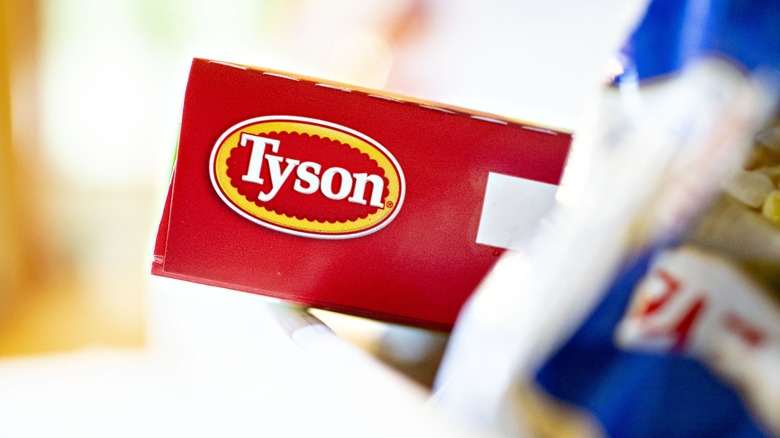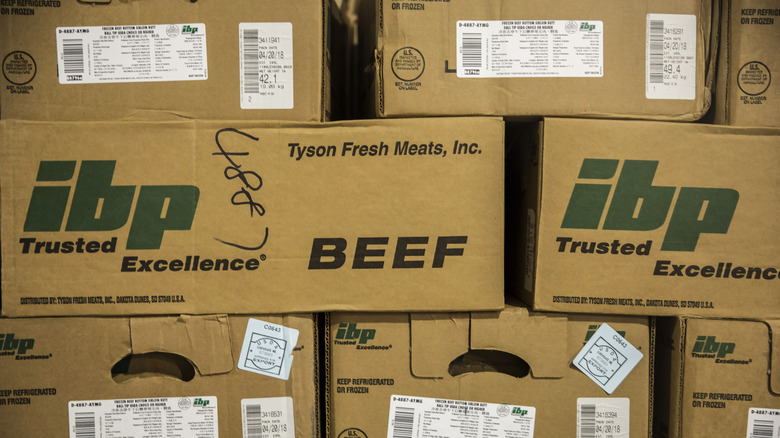A Mirror-Like Material Has Led To 93,000 Pounds Of Tyson Beef Being Recalled
On Wednesday, the United States Department of Agriculture (USDA) announced a recall of roughly 93,697 pounds of Tyson Fresh Meats products after receiving consumer reports of an extraneous "reflective mirror-like material" in three varieties of raw ground beef. The affected products, which were produced on November 2 and distributed to grocery stores in Texas, feature the recall number "EST. 245E" on the seam of the chub packaging, per the statement.
As of this writing, the USDA's Food Safety and Inspection Service (FSIS) says that there have been no reported illnesses from the contaminated beef, but that anyone in possession of the recalled product should throw it away or return it to the place of purchase for a refund. Tyson Foods confirmed the voluntary recall in a statement, adding that "no other Tyson ground beef products are affected."
In routinely health-inspected environments like commercial food production facilities, you'd think dangerous materials like glass would never make it into the products that get shipped to grocery stores. But one look at the Food & Drug Administration's (FDA) list of recalls, market withdrawals, and safety alerts shows just how often extraneous bits and bobs sneak into foodstuffs.
Glass is a common cause of recalls
Tyson Fresh Meats is certainly not the first brand to recall products on account of glass shards. The tag "glass fragments" yields a stunning number of recall alerts on Food Safety News, ranging from Stella Artois bottles to Trader Joe's salads. Why is glass such a common pest in mass-produced grocery items?
According to the food-industry webinar service Xtalks, the presence of glass and metal pieces in food often comes down to the packaging. When products are manufactured in a facility that uses glass jars or bottles, the tiniest fractures can lead to slivers of the stuff in the food product inside. "Although these recalls do not define a company's values and commitment to food safety, they can definitely alter the perceptions of their consumers," says Xtalks. The service urges companies to "invest in top quality detection and inspection systems" in order to avoid these kinds of recalls.

